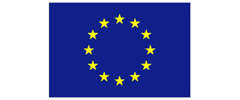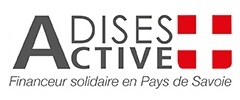French Nuclear Facility to Shut Down After Uranium Leak
French authorities ordered Friday the temporary closure of
12.07.2008 |Agence France Presse
LYON, France — French authorities ordered Friday the temporary closure of a nuclear treatment plant in a popular tourist region of southern France after a uranium leak polluted the local water supply. But site operator Socatri, a subsidiary of French nuclear giant Areva, said it would permanently shut down the facility at the Tricastin nuclear plant in Provence as part of a previously planned upgrade.France’s ASN nuclear safety authority cited a “series of faults and human negligence that is not acceptable” when it ordered the closure following an inspection at the plant on Thursday.
Residents in the Vaucluse region have been told not to drink water or eat fish from nearby rivers since the leak on Monday night, in which 75 kilogrammes (165 pounds) of untreated liquid uranium spilled into the ground. Swimming and water sports were also forbidden as was irrigation of crops with the contaminated water. ASN said it would recommend to local councils that the precautionary measures remain in place for at least a week. Part of France’s popular Provence summer tourist destination, the Vaucluse draws legions of holidaymakers to its picturesque towns. One of France’s 58 nuclear plants, Tricastin is located in Bollene, some 50 kilometres (30 miles) from the city of Avignon, which is currently hosting a major theatre festival.
Socatri
said it would shut down the facility — one of two at the nuclear treatment
plant — in the coming weeks. “We take note of the ASN’s decision,”
said Socatri spokesman Hugues Blacher. “We will take steps to ensure
that this type of incident does not happen again.” The
ASN severely criticised Socatri’s handling of the crisis, saying it had
been too slow to inform authorities following the incident, local ASN head
Charles-Antoine Louet told reporters. A
safety inspection carried out on Thursday found that “security steps aimed
at preventing any further pollution were not completely satisfactory,”
according to an ASN statement. The
ASN also detected a series of “irregularities” at the site’s operations
at the time of the incident, and has ordered Socatri to implement
“a reinforced surveillance plan including analysis of the surrounding
rivers and ground water.”
The
ASN said its report would be handed to the state prosecutor for possible
legal action against Socatri, which was singled out by the safety body
in May over “repeated leaks” last year in the site’s waste water evacuation
system. The leakage this week occurred when liquid was transferred
from one container to another at the Tricastin site, which has
a nuclear reactor as well as a radioactive treatment plant. Socatri said Wednesday that tests carried out on the groundwater, three local wells and the rivers had shown “no abnormal elements” and French Ecology Minister Jean-Louis Borloo insisted Thursday there was “no imminent danger” to the local population. But the ASN this week found abnormal levels of radiation in several rivers and lakes in the region although these were found to be decreasing. The incident at Tricastin ranked as a level-one incident on the seven-point scale to rank nuclear accidents.
French
anti-nuclear group Sortir du nucleaire (End nuclear power) had accused
Areva of withholding information about the spill and “deliberately putting
the population at risk.” On Thursday, it said it would lodge a complaint
against the ASN for failing to quickly notify the population of the
incident. The
75 kilogrammes of untreated uranium amounts to 6.26 cubic metres of liquid
containing 12 grammes of uranium per litre, according to Socatri.
©
2008 Agence France Presse
Related News
International Symposium WECF France on the impact of early life exposure to toxic chemicals
Mobilising public authorities, perinatal professionals and civil society on primary prevention and the importance of environmental health issues in health practices
11.05.2016
Testing confirms that toys sold on the EU market still contain chemicals of concern
On November 10th and 16th, WECF organized 2 events in France and the Netherlands to raise awareness on chemicals of concern in toys
16.11.2011 | WECF Press Release
SIN List 2.0 targets Endocrine Disrupters for priority action in the EU
22 new endocrine disrupters identified by European NGOs
03.05.2011
22 Mars 2011: Journée Internationale de l’eau
Le 22 Mars 2011, à l’occasion de la Journée Internationale de l’eau, WECF en partenariat avec le CNSP (Centre National de santé publique) et WiSDOM a organisé une conférence internationale sur la thématique «L’implémentation du droit humain à l’eau et à l’assainissement en Moldavie avec un accent particulier sur le Protocole sur l’eau et la santé».
24.03.2011 | Natalia Dejean
Convention de Stockholm
la longue marche vers le classement de l'endosulfan comme POP (Polluant Organique Persistant)
11.10.2010 | WECF France





































